 Your new post is loading...
 Your new post is loading...

|
Rescooped by
Gust MEES
from Educational Technology News
March 31, 2022 4:09 PM
|

|
Scooped by
Gust MEES
September 8, 2020 7:22 PM
|
Is critical thinking for kids? Absolutely! The art of critical thinking begins in childhood. What kind of thinker is your child? Does he believe everything on TV? Does she always figure out how to get what she wants?
Does he ask questions? Does she go along with what her friends suggest? You can help develop your child’s critical thinking skills by learning a few key guidelines!
Whether your child is just starting summer vacation or in the midst of the school year, parents can help keep minds active in fun ways. Critical thinking skills don’t fully develop until adolescence, but the foundations for good thinking develop in younger children.
The nonprofit Foundation for Critical Thinking cultivates core intellectual virtues that lead to fair-minded thinking. They have identified three ways K-6 children typically think. Learn more / En savoir plus / Mehr erfahren: https://www.scoop.it/t/21st-century-learning-and-teaching?tag=Critical-Thinking

|
Scooped by
Gust MEES
March 4, 2020 11:50 AM
|
Changing The Learning Process
Until now, this level of personalization has been limited to small classrooms, though AI makes every classroom feel like a small one. AI systems analyze students' progress on a scale that teachers alone cannot, effectively minimizing the student-teacher ratio problem. AI systems also erase distance. Learning happens anywhere at any time.
Another benefit of AI-augmented education is that it isn't judgemental. Constructive criticism from an AI tutor can feel less intimidating than a fellow human. Students, especially the underserved, who may not be accustomed to such feedback, are likely to respond more positively to this feedback and are thus more likely to seek it out in the future. Feedback from AI systems is instantaneous and thereby extremely effective and can be acted on immediately. Learn more / En savoir plus / Mehr erfahren: https://www.scoop.it/t/21st-century-learning-and-teaching/?&tag=AI https://www.scoop.it/t/21st-century-innovative-technologies-and-developments/?&tag=AI

|
Scooped by
Gust MEES
February 6, 2020 6:48 PM
|
My Modern Knowledge as I am retired... I recently met some young female teachers, educators in a Restaurant and as I am a very social person I started in to a discussion: I love to talk to find out what persons are around me and IF from EDUcation, guess, I can't STOP to… Learn more / En savoir plus / Mehr erfahren: https://www.scoop.it/topic/21st-century-learning-and-teaching/?&tag=Gust-MEES

|
Scooped by
Gust MEES
January 6, 2020 12:10 PM
|

|
Scooped by
Gust MEES
January 5, 2020 10:37 AM
|

|
Rescooped by
Gust MEES
from Luxembourg (Europe)
December 7, 2019 3:32 PM
|

|
Scooped by
Gust MEES
October 22, 2019 5:47 PM
|

|
Scooped by
Gust MEES
April 30, 2019 11:23 AM
|
This book highlights new scientific research about how people learn, including interdisciplinary perspectives from neuroscience, the social, cognitive Learn more / En savoir plus / Mehr erfahren:

|
Scooped by
Gust MEES
December 4, 2018 4:07 PM
|

|
Scooped by
Gust MEES
June 30, 2018 4:02 PM
|
Kuhn's idea was, itself, revolutionary in its time. It caused a major change in the way that academics talk about science; and, so, it may be that it caused (or was part of) a "paradigm shift" in the history and sociology of science. However, Kuhn would not recognize such a paradigm shift.

|
Scooped by
Gust MEES
May 27, 2018 1:01 PM
|
Motiver ?
Depuis la fin du XIXème siècle, de nombreux de pédagogues ont avancé des propositions pour donner vie et force au désir d’apprendre. Alfred Binet, pédagogue et psychologue français, plus connu pour ses tests, écrivait par exemple en 1902 dans son livre « Les idées modernes sur les enfants » :
: « Au lieu de lui expliquer des idées, il vaut mieux les lui faire trouver ; au lieu de lui donner des ordres, il vaut mieux lui laisser la spontanéité de ses actes, et n’intervenir que pour contrôler ». Il ajoutait plus loin : « Entrez dans une classe ; si vous voyez les élèves immobiles, écoutant sans peine un maître agité qui pérore dans sa chaire, ou encore vous voyez ces enfants, copier, écrire le cours que le maître leur dicte, dites-vous que c’est de la mauvaise pédagogie. J’aime mieux une classe où je verrais des enfants moins silencieux, plus bruyants mais occupés à faire le travail le plus modeste, pourvu que ce soit un travail où ils mettent un effort personnel, un travail qui est leur œuvre, qui exige un peu de réflexion, de jugement et de goût. »
Depuis la mise en place des écoles actives voici plus d’un siècle, l’activité justement et l’autonomie de l’élève, son plaisir de découvrir par lui-même, de se questionner et de chercher sont recommandés comme les meilleurs agents de la motivation. Les questions nourrissent la curiosité et entraînent la dynamique du « connaître ». Les attentes de l’enfant, ses projets jouent un rôle moteur, auquel contribuent fondamentalement la confiance dans ses compétence intellectuelles et l’estime de soi, que notre système scolaire met particulièrement à mal. Learn more / En savoir plus / Mehr erfahren: https://www.scoop.it/t/21st-century-learning-and-teaching/?&tag=Modern+Learning

|
Scooped by
Gust MEES
January 7, 2018 11:26 AM
|
|

|
Scooped by
Gust MEES
October 10, 2020 9:15 AM
|
At first, many faculty sought to replicate online what they normally do in a classroom. They soon discovered this was not a strategy that was practical, as not all students could access synchronous classes reliably and many had challenges, such as other siblings or parents needing access to the technology, the costs of broadband Internet access exceeding their ability to pay, or were in different time zones. Nor was it efficient.
In fact, what faculty began to discover is what has been known for some time. There is “no empirical evidence that says that classroom instruction benefits students (compared to alternatives) from a learning achievement perspective”, a finding from the Centre for the Study of Learning and Performance at Concordia University. Faculty began to experiment with personal challenges, small group work, project-based learning and the recording of short videos. They began to explore pedagogy, the science and art of instruction based on design.
Faculty sought help from colleagues with previous experience teaching online, looking for evidence for what worked in their discipline. They were inspired by examples for creative arts and music, where Zoom rehearsals and performances produced remarkable and life-changing events. Some discovered open education resources, materials, labs, videos, simulations, games, that helped them find new ways of engaging their online learners. Some truly innovative design ideas emerged, such a course on COVID-19 in which a different “angle” (epidemiology, economics, psychology, virology, politics) became the focus for each week taught by a faculty member from that discipline. Learn more / En savoir plus / Mehr erfahren: https://www.scoop.it/topic/21st-century-learning-and-teaching/?&tag=pedagogy

|
Scooped by
Gust MEES
May 9, 2020 11:04 AM
|

|
Scooped by
Gust MEES
February 8, 2020 3:47 PM
|
Description
Teach programming across Key Stage 1 with:
- Lesson outlines.
- A sequence of pupil activities using free, online resources to teach programming. This includes a 'What is programming?' video designed to explain programming (below) to pupils aged 4+ and 6 other videos that can be shown to pupils to introduce each activity.
- 3 unplugged (printable) activities.
- Video tutorial for teachers demonstrating how a free website can be used to assess each skill covered in this pack.
- Pupil activity pack with 7 activities (including 'What is programming?' video) with video tutorials guiding pupils through online tasks to learn skills at their own pace. Learn more / En savoir plus / Mehr erfahren: https://www.scoop.it/topic/21st-century-learning-and-teaching/?&tag=Coding https://www.scoop.it/topic/21st-century-learning-and-teaching/?&tag=Programming...

|
Scooped by
Gust MEES
January 16, 2020 4:58 PM
|

|
Scooped by
Gust MEES
January 5, 2020 12:22 PM
|

|
Scooped by
Gust MEES
January 4, 2020 3:04 PM
|

|
Scooped by
Gust MEES
November 11, 2019 6:48 PM
|
SO, you are a retired EDUcator, TEACHer, Instructor, LEHRENDER: WHAT to do NOW?!! Well, that was the question I was asking myself when I became retired in 2014. As I did innovation in Modern-EDUcation in my country Luxembourg, there was NO WAY to give that up, BTW! SO, years before my retirement I… Learn more / En savoir plus / Mehr erfahren: https://gustmees.wordpress.com/

|
Scooped by
Gust MEES
May 19, 2019 3:34 AM
|
Part of the challenge facing educationalists is that technological change will call for skills that fall outside of age-old approaches to curriculum design and teaching. Emotional intelligence, creative thinking, and collaboration are just three core aptitudes that will be needed, but which cannot easily be taught in a traditional classroom environment. “Updating curriculum should always be on the agenda,” says Jaime Saavedra of the World Bank, quoted in the WEFFI report. “But it is incredibly urgent to invest in changing the behaviour of teachers and improving what happens inside the classroom. Learn more / En savoir plus / Mehr erfahren:

|
Scooped by
Gust MEES
December 8, 2018 8:33 PM
|
Avec les nouveaux modèles d’enseignement, tous les équilibres, tous les codes sont remis en cause. Au sens strict du terme, il n’y a plus d’enseignant, pas de cours, pas de programme, rien que des cas concrets à résoudre en trouvant soi-même la solution ou en s’associant à d’autres élèves. Cette pédagogie met l’accent sur le comportement, les capacités à travailler à plusieurs et à apprendre très vite en autonomie.
Pour Romain Martin, vice-recteur pour les affaires académiques de l’Université du Luxembourg, «la principale erreur consiste à se focaliser sur les technologies elles-mêmes. Il ne faut pas simplement regarder l’outil, mais comment ces outils sont utilisés.» Une désacralisation des technologies pourtant au cœur des enjeux, au profit d’une démarche pédagogique nouvelle. La tendance est ainsi à l’«adaptive learning». [Gust MEES] pratiquant ceci déjà depuis 2002 et enfin reconnu... Learn more / En savoir plus / Mehr erfahren: https://www.scoop.it/t/21st-century-learning-and-teaching/?&tag=Modern+Learning https://gustmees.wordpress.com/?s=learning+2+learn

|
Scooped by
Gust MEES
September 17, 2018 7:47 AM
|
Si l’école se concentre sur la mémorisation et le calcul, l’homme sera un jour dépassé par la machine, prévient François Taddei. D’où la nécessité d’enseigner à l’école coopération, créativité, communication, critique constructive et compassion. François Taddei
Polytechnicien, directeur de recherche à l’Inserm, auteur du livre Apprendre au XXIe siècle (1)
La Croix : La diffusion du numérique marque-t-elle une rupture dans l’histoire de l’école ?
François Taddei : Avec le numérique, l’école ne fait pas table rase du passé. Elle s’enrichit de nouvelles possibilités pédagogiques, suivant une évolution graduelle et hétérogène. Certains professeurs recourent beaucoup à ces outils, d’autres moins. De même, certains vont utiliser un tableau blanc interactif sans abandonner leurs méthodes d’enseignement très frontales.
Il n’empêche, les technologies de l’information et de la communication pour l’enseignement démultiplient les opportunités. En 1920, Célestin Freinet utilisait l’imprimerie pour permettre à la classe de communiquer avec le reste du monde. Aujourd’hui, le numérique permet de décloisonner instantanément la classe, par exemple en lui permettant de rédiger collectivement de courts textes postés sur Twitter.
De plus, on a accès, avec Internet, à une masse infinie d’informations situées hors des murs de l’école, à une multitude d’interactions avec l’extérieur. Si un enseignant et ses élèves s’intéressent au climat, ils peuvent aujourd’hui entrer en contact avec des chercheurs en mission dans l’Antarctique ! Learn more / En savoir plus / Mehr erfahren: https://www.scoop.it/t/21st-century-learning-and-teaching/?&tag=Modern+Learning https://www.scoop.it/t/21st-century-learning-and-teaching/?&tag=modern-education

|
Scooped by
Gust MEES
June 18, 2018 3:07 PM
|

|
Scooped by
Gust MEES
May 7, 2018 3:41 PM
|
I was fortunate to be able to share my thoughts on how digital content curation may be implemented as a powerful pedagogical approach in the latest issue of SCIS Connections. Learn more / En savoir plus / Mehr erfahren: https://gustmees.wordpress.com/?s=curation
|



 Your new post is loading...
Your new post is loading...

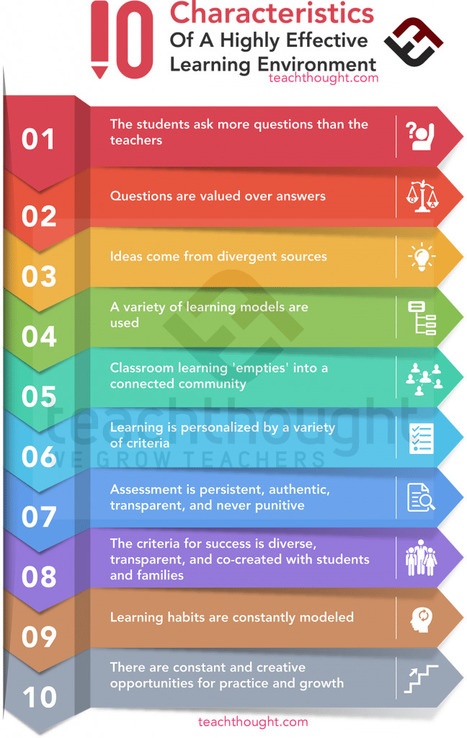




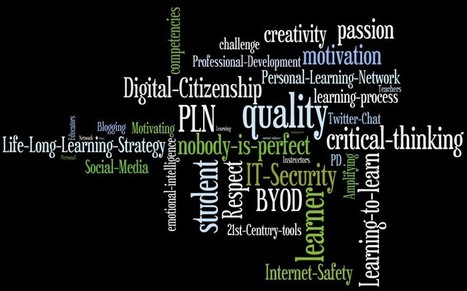
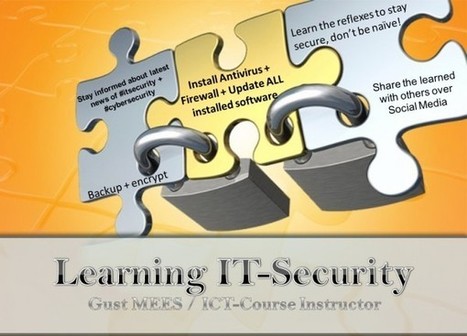
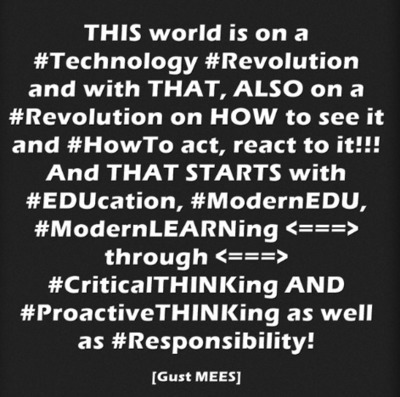



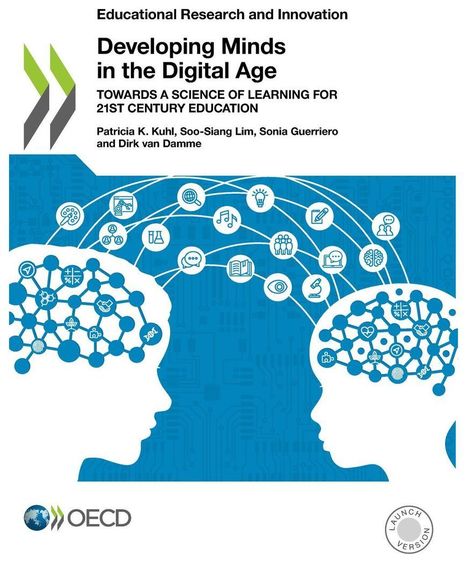
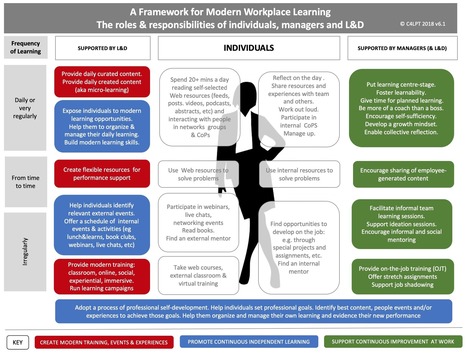



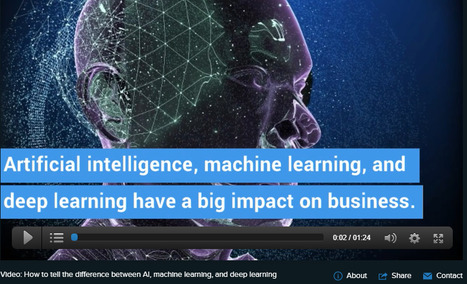


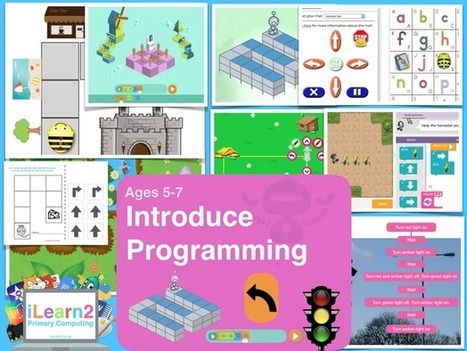
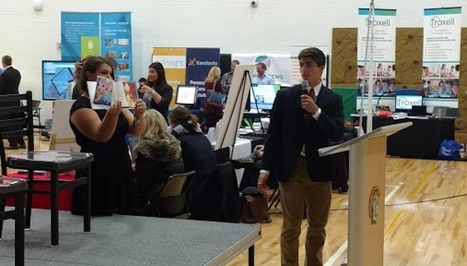

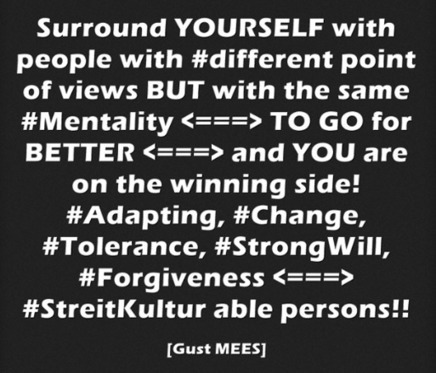
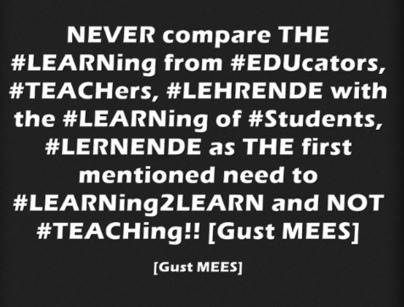


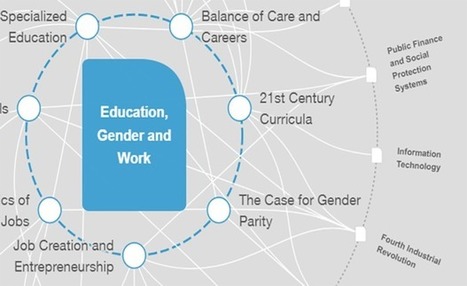



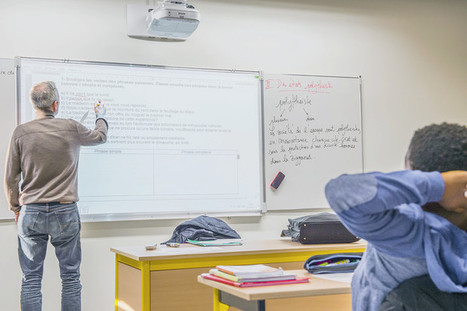
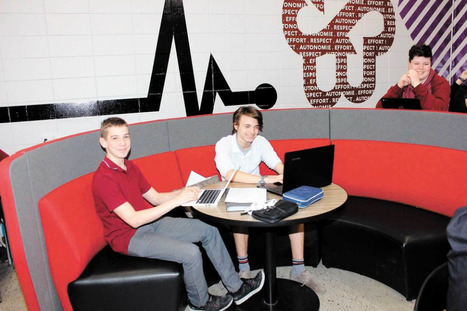






Wherever we are, we’d all like to think our classrooms are ‘intellectually active’ places. Progressive learning (like our 21st Century Model, for example) environments. Highly-effective and conducive to student-centered learning.
Learn more / En savoir plus / Mehr erfahren:
https://www.scoop.it/t/21st-century-learning-and-teaching/?tag=Student+Centered+Learning
https://www.scoop.it/topic/21st-century-learning-and-teaching/?&tag=Modern+Learning